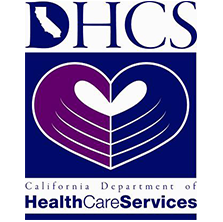With the increase of drugs and supplements that have become more widely available, substances such as kratom raise various questions. How addictive is kratom, and what are the side effects of regular use? What are the symptoms of withdrawing from kratom, and is detoxing from kratom dangerous?
What Is Kratom?
Kratom is a plant from southeast Asia growing in popularity in the United States. In local cultures, such as in Thailand, fresh leaves are typically chewed or brewed into a tea for mild stimulant effects and pain relief. It is commonly sold dried and powdered in capsules as an over the counter supplement in the US. Despite the fact it is an opiate, it is not currently regulated by the DEA. Recreational users find that low doses typically produce mild stimulatory effects while higher doses tend to be sedative. It is also effective at alleviating pain. While it doesn’t necessarily pose the same degree of risks that traditional opiates do, there is still the potential for abuse and adverse effects with frequent use. Further research is needed to deepen understanding of kratom’s dangers, especially regarding overdose.
An Increase in Kratom Use
With the ongoing opiate crisis in the United States, many have turned to kratom to mitigate the effects of opiate withdrawal. People find that kratom helps them wean off harder opiates, such as heroin, in a way that is thought to be safer due to kratom’s legality, ease of access, and status as an herb or natural remedy. Whereas opiates typically require a prescription or illegal purchase to acquire, kratom can be bought over the counter and is often sold at smoke shops as a supplement.
Overall, kratom’s ease of access, combined with its growing popularity for self-treatment of heroin withdrawal, has led to increased kratom use in the United States. The situation with kratom is tricky; on the one hand, there have been many anecdotal reports of individuals weaning off mild opiate dependency with kratom. On the other hand, kratom presents a risk for dependence of its own. New opiate users’ potential to start with kratom remains an ongoing risk because of its legality.
The Dangers of Kratom
The fact that kratom works on the body’s opiate receptors may sound the alarm and cause concern for the immediate safety of its users. However, kratom’s pharmacology differs from substances like heroin in crucial ways that complicate the dangers it poses to users. There are many different types of opiate receptors, and kratom only works on a subset of them instead of typical opiates that work across the full spectrum of receptors.
Unlike traditional opiates, kratom also affects serotonin and norepinephrine reuptake. The multitude of active pathways that kratom takes in the body is why it may pose a danger to users. Not only does kratom create risk for opiate-style overdoses with dampened neural activity, but the serotonergic activity may also lead to overactivity to the point of seizure. While the number of reported kratom overdoses pales compared to heroin overdoses, kratom overdose signs are trickier to spot and even more complicated to treat. While opiate overdoses are treated with Narcan, symptoms like seizures are treated with sedatives.
For these reasons, recreational kratom use is worthy of concern, especially considering its current ease of access. The precise dose per capsule is difficult to determine as the plant’s potency, growing methods, and source can vary dramatically.
Kratom’s reputation as a natural remedy creates more potential for misuse. Kratom is a psychoactive drug, but it is often sold alongside herbs and teas, which are safe and associated with a lack of danger. Simple lack of education of kratom’s pharmacology coupled with its complex mechanisms warrant caution regarding kratom use and necessitates further research into its safety and potential for opiate addiction treatment.
Withdrawal and Detox
Do not be fooled by the idea of kratom as a natural and safe drug. There is still the potential for abuse and dependency on the substance. Common withdrawal symptoms from kratom may include:
- Body aches
- Anxiety
- Mood swings
- Hostility
- Restlessness
- Tremors
- Cravings for the substance
The detox process for kratom resembles detoxification from other opiates and should not be attempted alone for your safety and the greatest potential for success. Consult your doctor or a detox center such as Safe Harbor for the proper medical and psychological support during this process.
It is essential to look for a program that will approach you as a whole person when dealing with substance abuse. At Safe Harbor, we evaluate for co-occurring disorders, provide medical support and counseling, create ongoing strategies to live sober aftercare, and most importantly, we do so compassionately to help you heal your entire self.
Kratom is the leaves of a plant native to Southeast Asia, used as a mild stimulant and pain reliever. The use and sale of kratom in the United States have grown significantly, leading to concern over this drug’s safety. Many claim that kratom helps with heroin withdrawal, but there is a significant risk of dependency in kratom use. Kratom works on a subset of opiate receptors and inhibits the reuptake of serotonin and norepinephrine, leading to complicated overdose symptoms that may range from opiate-like overdose symptoms to seizures. Just because Kratom leaves have been used in its native cultures does not mean that the extracts and powders being sold today are free of danger or risk. We understand the desperation you may feel to be free from addiction to opiates. Replacing opiates with another substance like kratom can be risky and fail to treat the root of your suffering. Safe Harbor offers the compassionate support needed to detox once and for all. Call (833) 580-1473 today for more information.
START YOUR JOURNEY WITH
SAFE HARBOR HOUSE
(310) 861-4157
Contact Us Today
Verify Your Insurance




